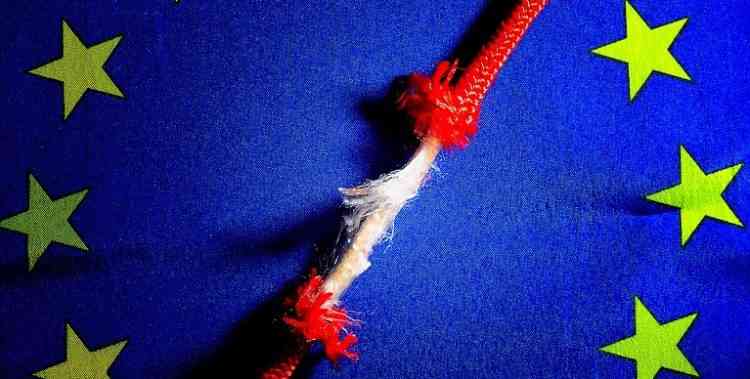On Thursday this week the EU and the UK formally approved the transition deal, the deal which essentially sets out the process and time frame for the UK to formally leave and switch out the lights was agreed by both parties and now opens the door for more ground-breaking talks. These include future trade deals, financial passporting and the crucial Irish border.

What exactly have the EU and UK approved?
Theresa May escaped negotiations with the ability to seal her own trade deals whilst the 21-month transition takes place and has access to the single market whilst the withdrawal is implemented.
Prospective new trade deals which will be spearheaded by Liam Fox could then be signed initiated in 2021 allowing the UK to seal new business before the dispensing of the UK’s and EU tie.
The transition deal which will undeniably provide more comfort to UK businesses will allow those with EU dependent enterprises to adjust and react accordingly over the next 21 months.
In true Tory fashion elements of the Brexit transition, deal have been criticised with the UK’s inability to amend immigration policies for those coming from the EU during the transition period being heavily critiqued.
May has always been very vocal on immigration which had been an underlying motivation for the Brexit vote. Essentially little will change until 2021 and this will almost certainly be noted by hard-line Tory brexiteers as well as opposing parties.
Where does the UK stand on implications of the Irish border?
The Irish border brought a halt to the first round of negotiations leaving May and Davis with egg on their faces and scurrying back to the UK to speak with the cabinet. Whilst the final outcome of the Irish border would appear to be far from resolved the UK and EU have found a default solution for the transition period which avoids the implementation of a hard border, ensuring regulatory balance.
Michel Barnier confirmed:
“We agree today that the back-stop solution must form part of the legal text of the withdrawal agreement.”
Sterling’s reaction to the transition deal
The pound sterling has been on the ascendancy once again bolstered by the encouraging Brexit news and the recent Bank of England statement. The UK’s economic data has also assisted and despite a level uncertainty, the pound has prospered. This week the pound reached a three-month high against the Euro however it appears the Sterling has resistance at 1.15.
The Pound has also performed well against the Dollar and closed at 1.4134 on Friday. Pound continues to perform well against the down-trodden Dollar which was unable to capitalise on this week’s interest rate rise, with the Dollar depreciating following the FOMC’s comments.
Whilst many investors are now tipping Sterling to strengthen in April especially as political backbiting has been more moderate, a Brexit Transition deal has been flesh out and Sterling has had the better run of data, including services figures.
Whilst the Pound is far from out the woods or near to approaching historic levels, typically April is a good month for the currency as overseas earnings are repatriated back to pound strengthening the currency.
Sterling buoyed by recent UK data
Key economic data has also thrown a positive light on GBP this week. Key data releases included retail sales, average earnings figures and Inflation figures.
As concerns about the Brexit votes impact subside so it would appear, has the UK’s inflationary pressures. This month’s UK inflation figures (CPI) show that goods and services pricing is slowly easing. Whilst the lower than expected inflation figure is unlikely to change the BOE sentiment on interest rate rises it at least should have a positive impact on the consumer spending.
Another key economic data release which should help the UK consumer was the latest UK average earnings figures. The last 3 months figures demonstrated a greater than expected rise in earnings. In turn, this attributed to the largest UK wage growth in over two years. The data was combined with the latest unemployment data that signalled the lowest levels since 1975, with unemployment now running at just 4.3%.
Bolstering the Bank of England’s more upbeat outlook was the latest retail figures, a key indicator of the UK consumer spending is naturally fundamental any economy. UK retail figures have occasionally been erratic, last month for example showing a -0.2% contraction. The sector, however, this month has seemingly rebounded showing a growth of 0.8%. Whilst over the quarter growth remains weak at 0.4, this slow growth is echoed by a number of struggling retailers and closures including Toy’s R Us which officially closed in the UK this week.
This week’s UK economic data
The majority of the financial markets focus will surround spin and interpretation of the UK Brexit transition deal. Although Thresa May will claim that she has landed a great deal enabling the UK to breathe, Keep Calm and adjust accordingly stories have already begun circling about areas which haven’t been catered for, including the EU’s access to fishing waters.
In terms of Economic data, this week is fairly light for the UK as we head toward the Easter bank holiday. Key data of note features quarterly final GDP figures and Net lending. Less crucial, but always an interest talking point is the Halifax house price index which last month showed a fall in UK house prices of -0.3%. In any case, the hard work around Brexit is only just beginning, a transition deal is one thing, a deal which ticks all boxes and ensures that the UK prospers is quite another.